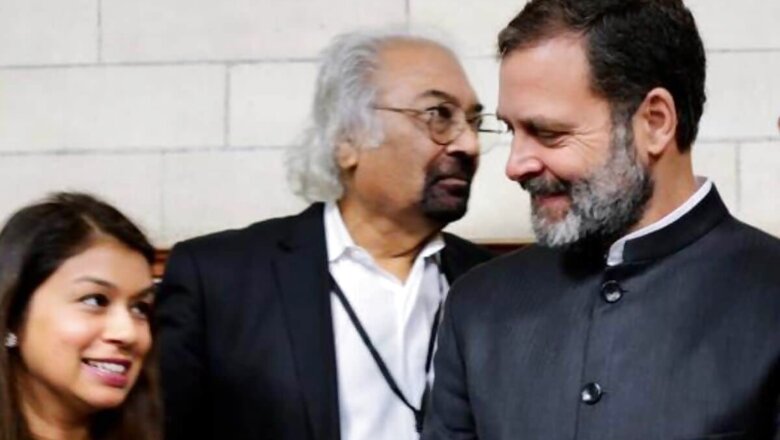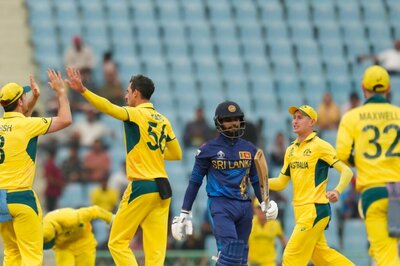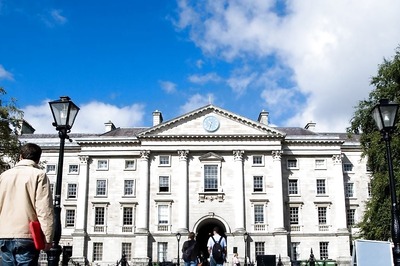
views
The role of Sam Pitroda in Rahul Gandhi’s inner circle of advisors is being keenly watched. Pitroda, head of the AICC’s Overseas chapters, is seen as instrumental in the former AICC chief’s tours abroad. Last fortnight, Pitroda was a regular fixture at Rahul’s interactions at Cambridge, London and other places in the United Kingdom.
A section of the Congress feels Rahul was ‘ill-advised’ in traveling abroad soon after his impressive Bharat Jodo Yatra. Instead of trying to convert the liberal and Leftists and the Indian diaspora in UK, Rahul could have focused more on domestic politics, poll-bound Karnataka or in strengthening the Opposition unity. During the Bharat Jodo Yatra, a number of Opposition leaders such as MK Stalin, Farooq Abdullah, Aditya Thackeray, Mahbooba Mufti, Supriya Sule, BSP’s Shyam Singh Yadav, representatives from the CPI, RSP, Muslim League, VCK and JMM had joined Rahul’s mega yatra.
Sam Pitroda, a US-based engineer-turned-policymaker, was Rajiv Gandhi’s blue-eyed boy. He was responsible for finalising telecommunication policies and computerisation programmes. In the recent years, Pitroda’s clout has reportedly gone up many folds because Rahul Gandhi views him as a fatherly figure.
In his autobiography, Dreaming Big: My Journey to Connect India, Pitroda has given a graphic account of how he met Rajiv Gandhi in 1985 when the Indian prime minister was visiting the US to invite the technocrat to work with him. Pitroda recalled telling the Indian ambassador then, “Please tell the PM that I’m going to be in Washington with my wife. We would very much like to meet him.”
The ambassador was not sure, pointing that Rajiv Gandhi’s schedule was solidly booked. “’I understand,” Pitroda remembers telling the ambassador, “Just say that Sam Pitroda would like to see him [Rajiv].”
Pitroda, born in Anand (Gujarat), had travelled from Chicago to Washington along with wife Anu and three friends, Prakash Desai, Rajiv Desai and Dr Divyesh Mehta. “We were being tourists and seeing some of the sights, when I heard from the ambassador that Rajiv was free for half an hour — between Caspar Weinberger, the then defence secretary, and George P Schultz, the then secretary of state. All of us were free to come,” Pitroda wrote in his memoirs illustrating the comfort he had with Rajiv Gandhi.
During the meeting, Rajiv reportedly told Pitroda’s wife and remarked: “Anu, I know Sam wants to come to India. I want you to make sure the children’s admission to school is taken care of. It’s very important, and Sam may not understand these things in Delhi. Let me know. It’s essential to get them into the right school.”
Pitorda goes on to add, “He (Rajiv) was speaking to Anu in exactly the sort of language she wanted to hear. I couldn’t help thinking what a truly exceptional person he was — what an effort he made and how relatable he could be.”
Throughout 1986-89, Pitroda’s ties with Rajiv deepened. “He would call me at night sometimes, at ten or ten-thirty. ‘Sam, come.’ So I would go with Anu to his home and we would talk, just the three of us…”
As Rajiv got into a number of political challenges including the Bofors scandal and VP Singh’s exit from the party, Pitroda emerged as a key crisis manager. By Pitroda’s admission, every day, some senior Congress leaders would meet at his 44, Lodhi Estate residence. “The players included Pranab Mukherjee, Jairam Ramesh, RD Pradhan, Suman Dubey, Krishna Rao, and several others. We’d all sit down and lay out a plan for that day, responding to the newspaper headlines, making our own headlines…” Pitroda would recall later.
Media and communication expert Rajiv Desai was also part of the now (in)famous Chicago Forum. Desai, politically inactive now, remained part of the Congress media department for years. In an interview, Desai had admitted how he and Pitroda had pushed for economic liberation in the 1980s. “As Indians in the US, Sam and I used to meet as part of the ‘Chicago Forum’. India’s liberalisation was always our agenda.”
Rajiv’s exit as prime minister in 1989 and subsequent assassination in 1991 temporarily halted the process of economic reforms. When P V Narasimha Rao became the ‘accidental prime minister’ and brought economist Dr Manmohan Singh as his finance minister, structural economic reforms became a reality. However, a protectionist lobby, also known as the Bombay Club, tried to block or slow down reforms. Rao-Singh duo ably negotiated such obstructions but Pitorda sought leave, returning back to Chicago. He made a comeback after the Congress-led UPA came to power in 2004. Prime Minister Manmohan Singh appointed him head of the National Knowledge Commission, a project meant to fast-track “social and economic development,” amid strong resistance from Arjun Singh and a section of the party.
In 2022, many overseas chapters of the Congress, namely from Spain, Australia, UK, Turkey, Bahrain, etc, had written a letter to Sonia Gandhi asking her to name Pitroda as a presidential nominee. But Pitroda said to have declined sensing a futile against contest NDA’s Droupadi Murmu who tamed the Opposition nominee Yashwant Sinha was a big margin.
All eyes are on Congress president Mallikarjun Kharge if Pitroda would be given a high seat in the Congress Working Committee too?
The writer is a Visiting Fellow at the Observer Research Foundation. A well-known political analyst, he has written several books, including ‘24 Akbar Road’ and ‘Sonia: A Biography’. Views expressed are personal.
Read all the Latest Opinions here


















Comments
0 comment